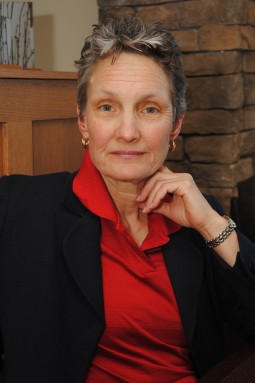Note: This article was originally published in June of 2017. It seemed a good time to revisit this topic.
In this crazy political time in which we live, it is not surprising that some Evangelical churches, especially those that minister mainly to millennials, have distanced themselves from hard-line, “non-affirming” churches. Some, indeed, have taken on the label of “affirming.” Many Evangelical Christians, regardless of age, feel what I think is legitimate guilt for how we have treated the LGBTQ+ communities in the past. We have regarded same-sex attraction (SSA) as worse than all other sexual sins and at the same time seemingly ignored the rampant pornography, fornication and adultery within our own camp. That we have been called Pharisees and hypocrites is not, alas, unjust.
Logs and Splinters
The important issue to me is one of repentance: What should our repentance look like? At the very least we need to stop equating SSA with the unforgivable sin of blaspheming the Holy Spirit. Neither would a healthy dose of prayerful consideration of how Jesus would interact with both unbelieving and believing people who experience SSA go amiss. It is also imperative that we level the playing field by addressing our own sins before we venture to point out those of others. (Remember what Jesus said about logs and splinters?)
Because as an Evangelical I take the Bible to be God’s true word to all people, I do believe that sexual sins exist. Moreover, I think the Bible clearly proscribes same-sex, sexual behavior. When I think in terms of WGA’s motto, “100% grace. 100% truth. No compromise,” the truth part puts me squarely within historic orthodoxy. Although I freely acknowledge that, as a fallen and finite being, I am incapable of 100% truth or grace, 100% grace is more difficult for me. Orthodoxy is probably easier to attain than orthopraxy, but what we do is arguably more important than what we believe (Mt. 25:31-46). Since I know that I will err, I choose to err on the side of grace; others will err on the side of truth. That said, cheap grace is devoutly to be avoided.
Justice and Overcorrection
So, I see justice and overcorrection in Gay-affirming, Evangelical churches. Some of the justice piece can be seen above. I am 100% certain (yup, 100%) that Jesus came to save sinners and welcomes all who enter his Church. I am not convinced, however, that Jesus cares whether or not we think SSA in particular is a sin when we begin to confront the fact of our sin in general. His Holy Spirit will convict us of sin on his timetable (Jn. 16:8). He will leave none of us as he finds us. Our job is to love one another (Jn. 13:34-35), and that is where overcorrection can occur.
History is fraught with extreme pendulum swings, with overcorrections. But as one who has already gone on record as preferring to err on the side of grace, I also favor any attempt at correction over intransigence. Still, correction, without the over, should be the Church’s aim in my opinion. We must devote ourselves to the difficult, prayerful work of loving one another as God leads, not necessarily as the beloved wants. True love wants what is best for the beloved, not what is easiest.

Elodie Emig
Ms. Emig holds an MA in New Testament from Denver Seminary. Since her student days, Ms. Emig has served the New Testament department of Denver Seminary as a grader and guest lecturer. She has also volunteered her exegetical expertise to Where Grace Abounds. She has written numerous articles on the Bible and homosexuality.

